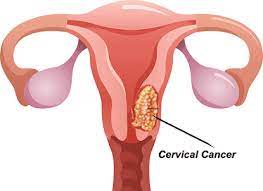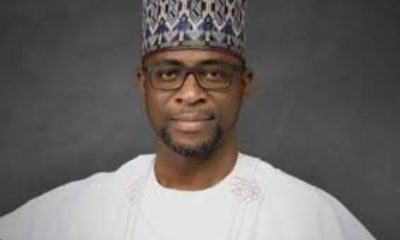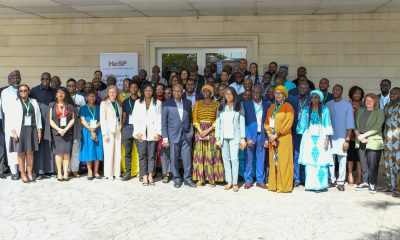Health
COVID-19: NCDC Reports 1,244 new Infections

The Nigeria Centre for Disease Control (NCDC) has reported 1,244 new cases of the Coronavirus (COVID-19), bringing the total number of infections in the country to 101,331.
The NCDC disclosed this on its official website late Monday.
The agency also confirmed additional three coronavirus-related deaths in the country in the past 24 hours.
The News Agency of Nigeria (NAN) reports that last week the country recorded more than 9,800 cases within seven days, thus surpassing its earlier weekly record of COVID-19 infections.
Available data shows that between Jan. 3 and 9, the country recorded 9,833 cases, a sharp increase from the 5,681 cases recorded in the previous week of Dec.
27, 2020, and Jan. 2, 2021.The public health agency said the new infections were reported from across 20 states and the Federal Capital Territory (FCT).
It disclosed that Lagos state, the epicentre of the virus in country, recorded the highest number of confirmed cases with 774 new infections, taking the total number of cases in the state to 36,875.
The health agency added that Lagos, FCT and Plateau recorded the highest number of COVID-19 infections with 774, 125 and 102 cases respectively.
Ohers states with new infections were Anambra-47, Ondo-46, Rivers-27, Edo-18, Kaduna-16, Ogun-16, Gombe-16, Bauchi-11, Kano-11, Nasarawa-10, Akwa Ibom-seven, Sokoto-seven, Borno-five, Ekiti-four, and Zamfara-two.
NCDC also announced the discharge of 461 patients from isolation centres across the country.
“Our discharges today include 144 community recoveries in Lagos State managed in line with guidelines,” it said, adding that it had conducted at least 1,033,858 tests since the first confirmed case of COVID-19 was announced in the country.
According to it, a multi-sectoral national Emergency Operations Centre (EOC) activated at Level 3, is coordinating response activities nationwide.
The agency issued a public health advisory to alert Nigerians that non-adherence to public health and social measures was undermining its response efforts aimed at limiting the continued spread of the virus.
“The average number of daily confirmed cases recorded in the first week of January 2021, was higher than the cumulative cases recorded the last week of December 2020.
“Following the festive season, and in view of the increase in the number of confirmed cases in Nigeria, the NCDC and partners, with leadership from the Federal Ministry of Health and the Presidential Task Force (PTF) on COVID-19 are putting in place measures to strengthen the public health agency’s response to the pandemic,” it said.
According to it, while Nigerians may be tired of the COVID-19 pandemic and its impact, the virus is taking advantage of the fatigue, complacency, gaining momentum, and taking advantage of lapses in the adherence to recommended safety protocols.
To prevent the further spread of COVID-19, the NCDC said, ”Nigerians are reminded to wear a face mask properly, wash hands with soap, and maintain physical distance from others.
“This is not the time to let down our guard. The virus that causes COVID-19 never went away and is still very much with us, as evidenced by the rising cases in Nigeria and globally.”
The NCDC noted that COVID-19 could affect all age groups with severe outcomes in the elderly (50 years and above), and in persons with co-morbidities such as hypertension, diabetes, cancer etc.
“Recently there has been increased infection among the younger age groups.
“Therefore, NCDC urges all persons to take responsibility and adhere to the non-pharmaceutical interventions (regular hand washing, maintaining physical distance, and proper use of face mask,” it explained.
It said it would continue to work with other agencies under the leadership of the Federal Ministry of Health to spear-head public health response to the disease.
It added that it would continue to play a key role in the multi-sectoral response to the disease, within the Presidential Task Force on COVID-19 (PTF-COVID-19), established by President Muhammadu Buhari.
Given the sustained increase in cases, the agency said it would also continue to work closely with state governments, provide support through the deployment of Rapid Response Teams, provide laboratory and medical supplies as well as carry out other response activities.
“We urge state governments to take greater ownership of their response, maintain their COVID-19 surveillance structures, laboratory diagnosis and testing.
“Unless states actively test, they will not know their disease burden, putting local communities at greater risk of adverse outcomes, if the virus is not detected and impacts vulnerable populations.
“NCDC has significantly scaled-up the national testing capacity by expanding the number of laboratories for COVID-19 testing across states.
“Testing remains one of the best tools we have in our fight against COVID-19, as it enables prompt clinical management and helps in preventing further transmission.
“The cumulative number of samples tested in the country has increased significantly, and some states have sustained their higher levels of testing.
“Although the country has yet to meet its total testing capacity, this remains a major priority for the response.
“Sample collection sites have also been established in many Local Government Areas, making public health testing more easily accessible.
“Testing in public laboratories remains free of charge (unless for travel purposes in private laboratories, where pricing structures vary,” it explained.
The NCDC charged healthcare professionals to maintain a high index of suspicion, especially when treating patients with breathing difficulties and also present with symptoms common to COVID-19.
It urged Nigerians to adhere to the recommended public health and social measures recommended by public health authorities and to avoid all non-essential travel within and outside Nigeria to reduce the risk of transmission.
“The virus that causes COVID-19 is more likely to spread in mass gatherings, especially in confined spaces with poor ventilation.
“It is advised that people avoid mass gatherings during this time, and if necessary meet outdoors and adhere to physical distancing and other public health measures.
“All these measures are critical in order to sustain the gains made since the onset of the pandemic.
“We also strongly advise business owners, employees and religious leaders to institute the strict enforcement and adherence to public measures, which include the wearing of face masks, ensuring the availability of handwashing facilities or providing hand sanitizers.
The NCDC said it remain grateful to all frontline health workers, state public health teams, stakeholders, and partners who have continued to work extremely hard since the beginning of the pandemic supporting the response efforts.
“We are all eager to get back to the normalcy in our lives, so the continued response and end to the outbreak starts and ends with all of us.
“We remain committed to protecting the health of all Nigerians,” it added. (NAN)
Health
Experts Seek Unified Action against Cervical Cancer

Torough David, Abuja
Stakeholders across health sectors have called for urgent, coordinated investment in prevention, equitable HPV vaccine access and harmonized health data to accelerate progress towards elimination of cervical cancer across Africa.
They made the call on Wednesday, during a panel session with the Theme ”Accelerating Cervical Cancer Elimination in Nigeria, From Policy to Practice”.
Head of Division, Maternal, Newborn, Child and Adolescent Health, Africa CDC, Dr Fidele Ngabo Gaga, highlighted its efforts to harmonise and aggregate health data across all 55 African Union (AU) Member States.
“We are developing a continent-wide data-sharing agreement and centralised repository to support data upstreaming and policy development.
“The goal is to present unified data at AU Summits, helping countries make evidence-based decisions,” Gaga said:
Prof. Imran Morhason-Bello, a leading gynaecologic oncologist from the University College Hospital, Ibadan, made a compelling financial case for prioritising prevention over treatment.
“Screening just between 2023 and 2027 will cost Nigeria N351 billion.
“But treating 10,000 women with invasive cervical cancer from 2027 to 2030 could cost us N1.4 trillion. Prevention is not only more humane, it is far more cost-effective,” he said.
Morhason-Bello also addressed innovations such as self-sampling for HPV testing, already being implemented in Nigeria through implementation science.
“Women receive a self-sampling kit, return it the same day, and positive results are treated before noon.
“It is happening in markets and schools. It is not a pilot, it is real.
“We have even developed a mobile app (available in multiple languages and offline) to guide women through the self-sampling process, increasing accessibility in low-resource settings,” he said.
External Affairs Director for MSD, Sub-Saharan Africa, Vuyo Mjekula, addressed one of the most common myths around the HPV vaccine rollout.
“Let me be clear, there is no shortage of HPV vaccines. If anyone tells you otherwise, call me directly. The real issue is equity and strategic allocation,” she said.
Mjekula recalled early proposals that included boys in HPV vaccination efforts, but warned that without careful planning, some countries would be left out entirely.
She called for one national policy that ensures equitable access to vaccines and services, especially for the most vulnerable girls.
“This is not about science alone. A dose costing N125,000 may be affordable to some, but to a woman in a rural village, it is like N10 million.
“If she must choose between survival and feeding her children, the answer is obvious,” she said.
She applauded Nigeria’s progress, noting that since the national rollout, the number of vaccinated girls across the continent has more than doubled, driven primarily by Nigeria’s leadership.
Mjekula also made an appeal for multi-sectoral collaboration, urging the involvement of private sector giants, from banks to telecoms and philanthropic foundations.
“Health is not just the government’s responsibility. We need to imagine beyond the healthcare we can afford with public funds and work toward the healthcare we want as a society,” she said.
She also called for a business case for investment in HPV prevention and cancer control, saying the task force must work hand-in-hand with all stakeholders.
“Let us go far together. If you want to go quickly, go alone. But if you want to go far, go together,” she said.
The symposium concluded with a call to integrate cancer screening into primary health care services.
It also called for the deployment of cost-effective technologies like self-sampling, addressing myths around vaccine shortages, and ensuring gender-sensitive, data-informed policies.
As Nigeria and the continent advance towards achieving the WHO 90-70-90 cervical cancer elimination targets, the message from experts was clear: “Let us do big and let us do it together”.
Health
89% of Infants Vaccinated Globally in 2024, WHO, UNICEF Warn of Risks

The United Nations agencies have reported that in 2024, approximately 89 per cent of infants worldwide, about 115 million children, received at least one dose of the diphtheria, tetanus, and pertussis (DTP) vaccine.This update comes from new national immunisation coverage data released on July 14 by the World Health Organisation (WHO) and the United Nations Children’s Fund (UNICEF).
Compared to 2023, an additional 171,000 children received at least one vaccine dose, and one million more completed the full three-dose DTP series. While these gains are modest, they reflect ongoing global efforts to protect children in spite of rising challenges.However, nearly 20 million infants still missed at least one DTP vaccine dose in 2024, including 14.3 million “zero-dose” children who never received any vaccine.This figure exceeds the 2024 target by four million, putting global immunisation goals outlined in the Immunisation Agenda 2030 at risk.WHO Director-General Dr Tedros Ghebreyesus emphasised the life-saving power of vaccines, stating, “It’s encouraging to see an increase in children vaccinated, but we still have much work to do. “Cuts in aid and vaccine misinformation threaten to reverse decades of progress.”He highlighted factors contributing to under-vaccination, including limited healthcare access, supply disruptions, conflict, and misinformation.“Data from 195 countries show 131 have consistently reached at least 90 per cent coverage with the first DTP dose since 2019. Yet, progress is stalling in 47 countries, with 22 nations seeing declines after previously meeting this target.”Tedros warned that conflict and humanitarian crises significantly undermined vaccination efforts.“A quarter of the world’s infants live in 26 fragile or conflict-affected countries, which account for half of all unvaccinated children globally.“In these areas, unvaccinated children rose from 3.6 million in 2019 to 5.4 million in 2024, highlighting an urgent need for integrated immunisation in humanitarian responses.“Immunisation coverage in 57 low-income countries supported by Gavi, the Vaccine Alliance, improved in 2024, reducing the number of under-vaccinated children by about 650,000.“Yet, some upper-middle- and high-income countries face early signs of declining coverage, which increases the risk of disease outbreaks.”UNICEF Executive Director Catherine Russell welcomed the progress but warned millions of children remained vulnerable to preventable diseases.She called for urgent action to overcome barriers such as shrinking health budgets, fragile systems, misinformation, and conflict-related access issues.Russell noted encouraging expansions in vaccines against HPV, meningitis, pneumococcal disease, polio, and rotavirus.“Global HPV vaccine coverage among eligible adolescent girls rose from 17 per cent in 2019 to 31 per cent in 2024, although it remains far below the 90 per cent target set for 2030.”Gavi CEO Dr Sania Nishtar added that while lower-income countries protected more children than ever, population growth, fragility, and conflict continued to hamper equity in vaccination efforts.She highlighted improvements in measles coverage but cautioned that it still fell short of the 95 per cent threshold required to prevent outbreaks.“Measles outbreaks nearly doubled from 33 countries in 2022 to 60 in 2024.”Nishtar stressed that funding shortfalls, instability, and rising misinformation threaten to stall or reverse progress, risking increased deaths from vaccine-preventable diseases.WHO and UNICEF called on governments and partners to close funding gaps for Gavi’s 2026–2030 strategic cycle to protect millions of children.They also urged strengthening immunisation efforts in conflict-affected and fragile settings, and prioritising locally led strategies and increased domestic investment in primary healthcare systems.Additionally, the agencies emphasised the need to counter vaccine misinformation through evidence-based campaigns.They also called for greater investment in robust data collection and disease surveillance systems to guide effective immunisation programmes. (NAN)Health
Nigeria Records 145 Lassa Fever Deaths, as Fatality Rate Increases

Nigeria has recorded 145 deaths from Lassa fever as of 2025 Epidemiological Week 25, with a case fatality rate (CFR) of 18.6 percent.
The Nigeria Centre for Disease Control and Prevention (NCDC), disclosed this in its latest report via its official website during the weekend in Abuja.
The NCDC said the week 25 figure marks an increase from 17.
6 percent reported for the same period in 2024.The report, which covered the week of June 16–22, revealed that 781 confirmed cases were reported out of 5,943 suspected cases across 20 states and 101 Local Government Areas (LGAs).
In the current reporting week, 10 new confirmed cases were reported in Ondo and Edo states with a slight increase from the eight cases recorded the previous week.
According to NCDC, 91 per cent of all confirmed cases in 2025 were reported from five states of Ondo (31%), Bauchi (24%), Edo (17%), Taraba (16%) and Ebonyi (3%).
It said that the disease continues to affect young adults predominantly, within the 21 to 30 age group most impacted. Males were slightly more affected, with a male-to-female ratio of 1:0.8.
The Nigerian public health agency, said that despite a decline in the overall number of suspected and confirmed cases compared to 2024, the rise in CFR is raising concerns among health experts.
The agency highlighted late presentation of cases, high treatment costs, and poor health-seeking behaviour as contributing factors to the increased fatality.
It said that no new infections among health workers were recorded in the reporting week, though 23 healthcare workers have been affected cumulatively this year.
The NCDC said it is currently in collaboration with partners, such as the World Health Organisation (WHO), the United States Centers for Disease Control and Prevention (US CDC), ALIMA, the Institute of Human Virology Nigeria (IHVN) and others.
The collaborations, it stated further, have intensified multi-sectoral response efforts to combat the spread of Lassa fever.
It said that, as part of these efforts, Integrate clinical trials are currently ongoing in Ondo State, with After Action Reviews (AARs) conducted in both Ondo and Ebonyi to evaluate the response to the outbreak.
The agency said that clinician sensitisation, community engagement activities and environmental response campaigns have been carried out in identified hotspot areas.
In addition, the NCDC said that it has deployed 10 national rapid response teams to various states, adopting a one health approach to disease control.
To further strengthen infection prevention and control (IPC), the agency launched an IPC e-learning platform and distributed updated Viral Hemorrhagic Fever (VHF) guidelines to health facilities across the country.
The agency said that other efforts also included active contact tracing, surveillance, media engagement and geospatial risk mapping, alongside regular webinars for clinicians and capacity-building sessions nationwide.
The NCDC identified key challenges including poor environmental sanitation and low community awareness, particularly in high-burden LGAs.
It also said that sustained efforts were needed to curb the fatality rate, ensure early detection, and improve public health outcomes.
The NCDC advised Nigerians to maintain proper hygiene, avoid contact with rodents, and seek medical help promptly when experiencing symptoms such as fever, sore throat, vomiting, or unexplained bleeding.
Lassa fever, which was first identified in 1969 in Lassa, Borno, is endemic in Nigeria, with outbreaks occurring annually.
Symptoms range from mild fever and joint pain to severe bleeding from the nose, mouth, and gastrointestinal tract.
The disease is fatal in about 20 percent of cases, particularly when treatment is delayed.
Across West Africa, hundreds of thousands are infected annually, experiencing symptoms such as fever, vomiting and, in severe cases, bleeding.
One of the most troubling complications is hearing loss, which affects about 25 percent of survivors.
The estimated fatality rate is one per cent, but during outbreaks, mortality can rise significantly, particularly among pregnant women and healthcare workers.
In spite of its significant health impact, Lassa fever remains one of the most neglected diseases, with limited resources allocated to its preventions and treatments.
Currently, no licensed vaccines exist, although around 20 candidates are in development, with the most advanced in Phase IIa clinical trials.






























